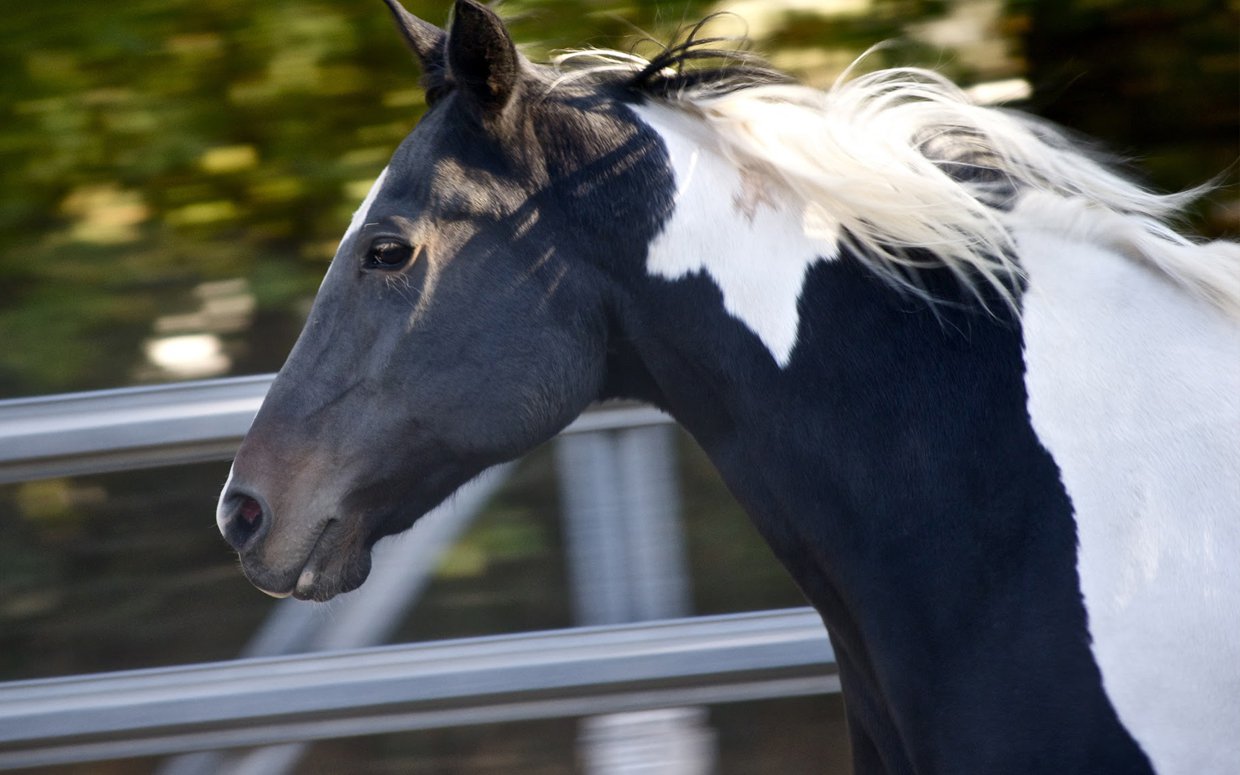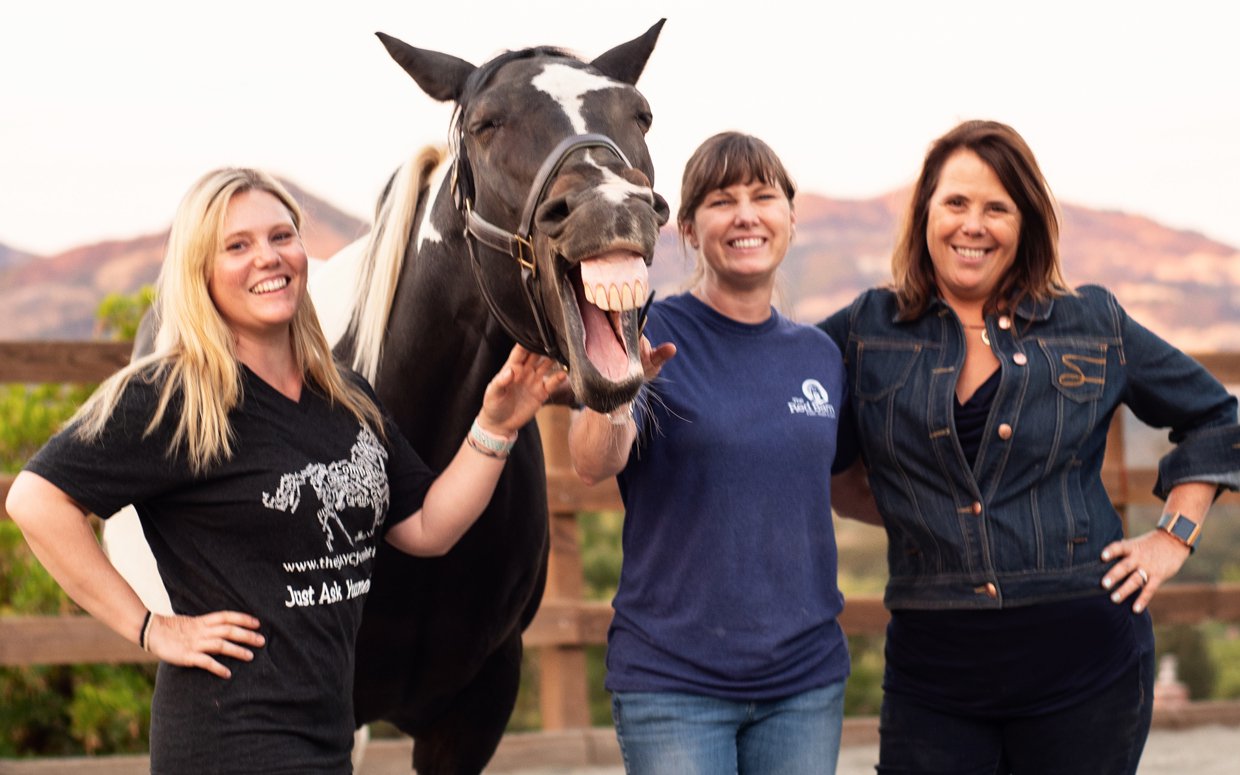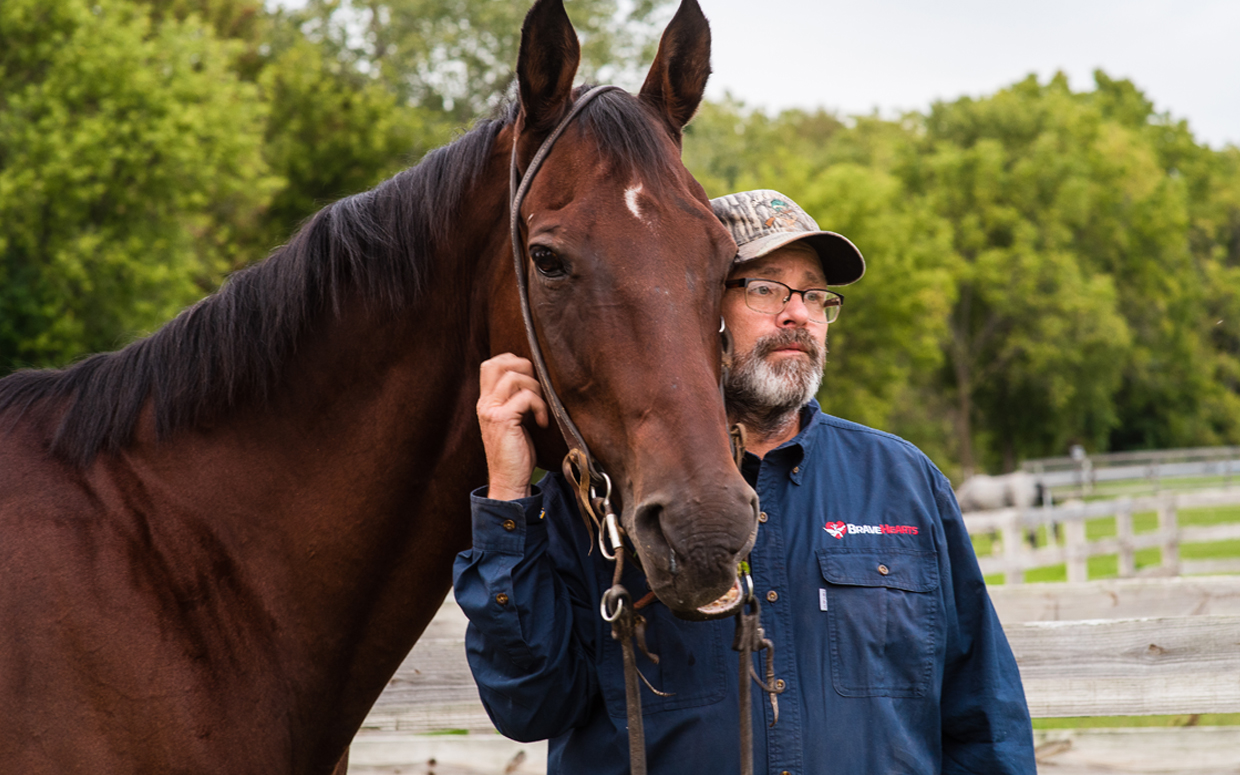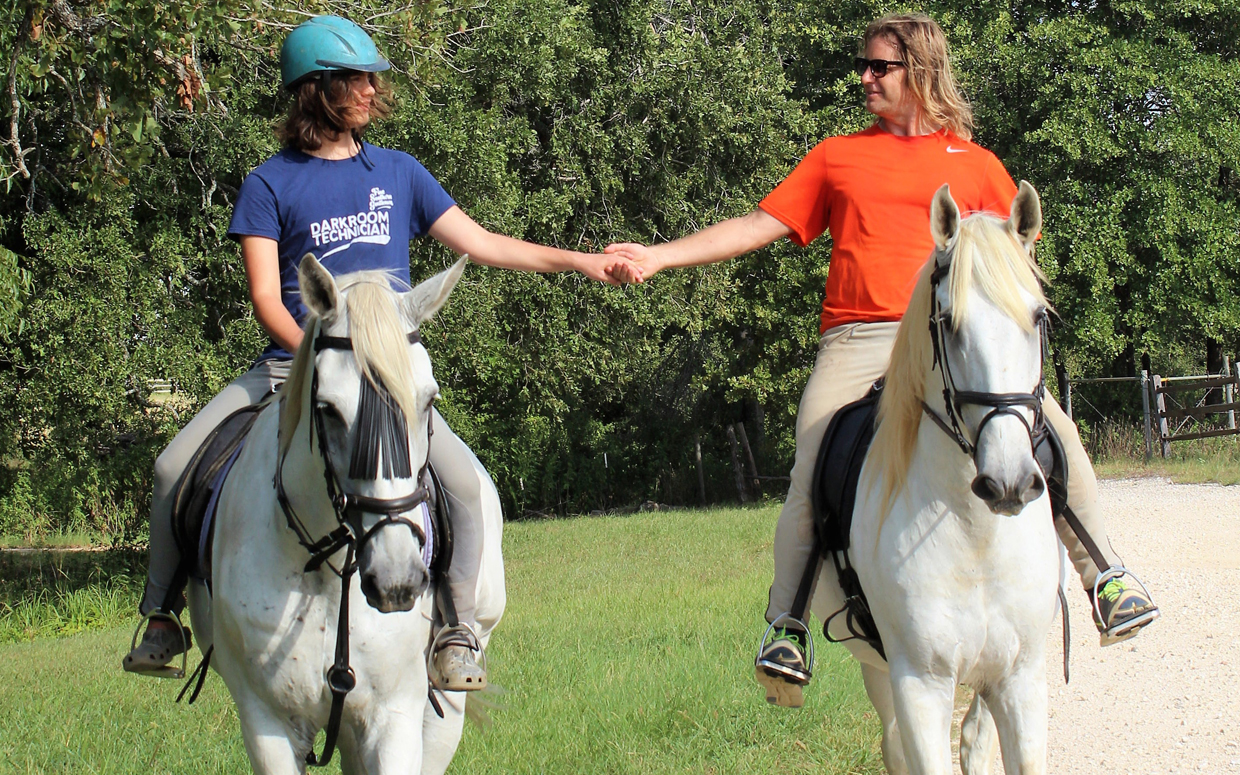Desperate, his wife went into the garage one day, told him he needed to get help and got him into an in-patient mental health program at the Milwaukee VA Medical Center. “I had no intention of opening up to anyone,” he recalls. “Just do my time and get back to the garage.” Then a recreational therapist told him to pick two activities. “Just checking boxes, knowing it wouldn’t help, I pointed to the first two on the list: a gym program and a two-hour-a-week horse thing,” Hathaway says.
He kept to himself on the bus to the BraveHearts therapeutic riding and educational center, located outside Harvard, Illinois. It’s the largest equine program in the country for veterans—providing free riding, ground activities and work with wild mustangs to veterans and their families. “When I got there, someone with a big smile and an Irish accent stuck his hand out and said, ‘We’re so happy you’re here.’ I just went off on my own, not interested in horses, the people or anything. I didn’t want to get attached.”
In spite of his protests, he eventually got on a horse called Boone. “I didn’t know nothin’ about horses. We walked around, and I was just looking at his mane and back of his head and, I don’t know how else to say it, I just had this deep sigh of relaxation and in a split second knew that everything would be OK, which hadn’t happened for years. That feeling was so alien to me.”
The next day Hathaway’s mind started wandering back to Boone and the farm, and over the next weeks he and Boone got up to a trot, everyone cheering him on. “It was just totally freeing and such a release. I started talking to people on the bus, started talking to my wife and kids and telling everyone I knew about BraveHearts.
“Those horses are a miracle. People who haven’t been through what veterans go through just don’t understand it,” Hathaway says. “They see the results [of military service], but they don’t know what happens inside your mind and your heart to get there. I would not be here today if it weren’t for BraveHearts and Boone. That is a fact. The program works so hard with each individual to be better and find a niche as a working part of society again.”
Last year, BraveHearts (where Hathaway is now barn manager, caring for 33 horses) served 835 veterans in 19,673 sessions at no charge. In 2018, to raise awareness about today’s epidemic veteran suicide rate (20 vets take their lives each day), a group of 11 veterans, one Gold Star father and three support staff from BraveHearts rode horses 20 miles in both Washington, D.C. (past the White House), and New York City (down Broadway through Times Square to Ground Zero).





